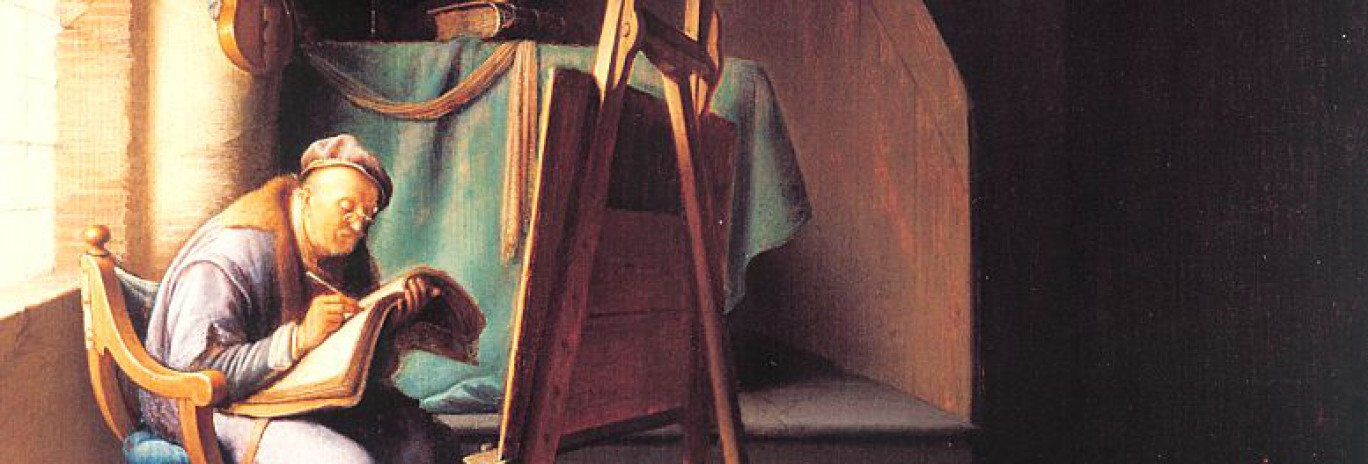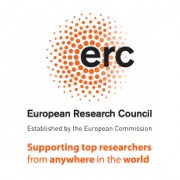Events
Technical Art History Colloquium VII – 17 November in Amsterdam
In order to ensure that you will be accommodated, please RSVP by Monday November 14: j.briggeman@uu.nl.
The Technical Art History Colloquium is organised by Sven Dupré (Utrecht University and University of Amsterdam, PI ERC ARTECHNE), Arjan de Koomen (University of Amsterdam, Coordinator MA Technical Art History), and Abbie Vandivere (University of Amsterdam, Coordinator MA Technical Art History & Paintings Conservator, Mauritshuis, The Hague). Monthly meetings take place on Thursdays, usually in Utrecht and Amsterdam.
Lecturers:
The Meaning of Colour Terms in Medieval Artists’ Recipe Collections. Some Puzzling Cases Within the Strasbourg Tradition
Sylvie Neven, Researcher, Transitions. Département de recherches sur le Moyen Âge & la première Modernité, Université de Liège
Occurrences of historical colour terms can be found in several old written sources and, notably, in medieval artists’ recipe collections. In parallel to the physical descriptions of pigments and colourants, these writings deliver information about their optical characteristics, conservation, (in)compatibility with other sorts of materials, and ageing properties. Within this type of source, a colour term may have had various meanings and correspond to different hues, substances or qualities. Moreover, the concept or the material designated by a colour term may change, not just in time and space, but from one recipe to another even if they derive from the same source. Looking through a large number of instructions dedicated to colours, it is possible to propose some categories for describing the different sorts of nomenclature and their nature, and it is also possible to suggest the range of pigments and colourants that one colour term could refer to. Variety and importance given to colour names can also be put in relation with the importance and the symbolic value accorded to a colouring agent or a colour. This paper will examine in depth some puzzling examples illustrated within a delimited corpus of recipe collection: the Strasbourg Tradition.
Material Knowledge, Trade and Supply. The Royal Colour Chamber During the Reign of Christian 4
Anne Haack Christensen, Paintings Conservator and PhD student, Statens Museum for Kunst, Copenhagen
This presentation is based on a PhD-project in progress investigating the preconditions available for painters and craftsmen active within the Danish Court in the early seventeenth century. The point of departure is the Colour Chamber accounts (Farvekammerregnskaber) – a comprehensive Danish account material preserved from the period 1610-1626 when Christian 4 (1577-1648) was the king of Denmark. The accounts constitute a rare and detailed insight into the trade, availability and use of painting materials in the early seventeenth century, listing both materials purchased by the Royal Danish Court from local merchants, apothecaries, spice trades and gold beaters as well as the subsequent dispensations to painters and craftsmen working for the Court. The materials handed out from the Colour Chamber were intended for various arts and crafts activities within the Danish Court. By linking the short descriptions of assignments with the distributed materials, detailed knowledge can be derived on the differences in material usage for projects like figureheads and sterns ornamenting the King’s warships, figures and decorations for firework displays as well as painting and maintenance of the royal castles. On few occasions the Colour Chamber also provided materials for finer projects such as portraits, frame gilding and sketches for tapestries. In addition to the insight on local trade, supply and use of materials, the terminology of pigment terms present in the accounts as well as in contemporary Danish sources is studied in order to elucidate the level of general material knowledge in Denmark at the time.
Admission to the colloquium is free. All those interested are welcome.
Next colloquium: 12 January, Amsterdam.


